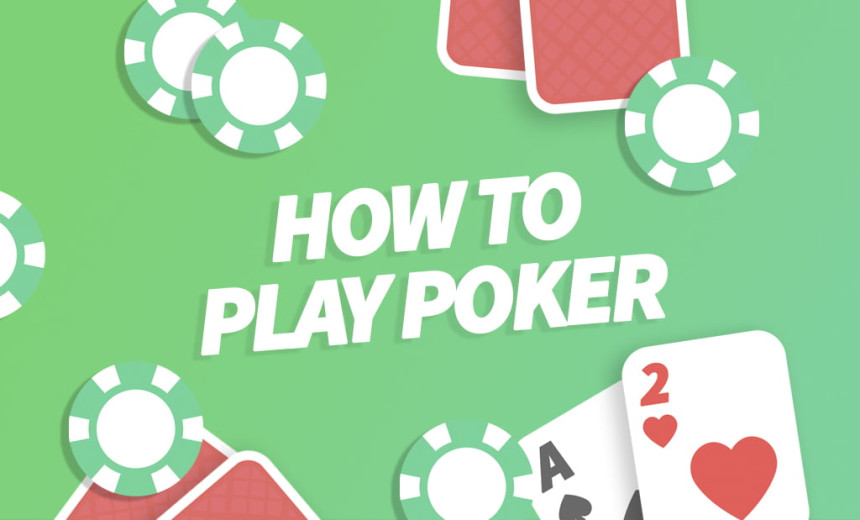
How to Play Poker: A Comprehensive Guide for Beginners
This beginner's guide to poker covers all you need to know to get started playing the game. We cover everything, from a fundamental comprehension of the rules to more complex methods. This post is useful for you whether you are just starting out in the game or you are an experienced player trying to enhance your skills.
Introduction
A gripping card game that mixes strategy, skill, and even a little bit of luck is known as poker. Mastering the art of poker can be lucrative and fun in equal measure, regardless of whether you like to play the game in a social setting with your friends or as part of a tournament against other players. In this instruction manual, we will walk you through all you need to know about how to play poker, beginning with the fundamentals and progressing all the way up to the more complex ideas as we go. Let us get this party started!
How to Play Poker: The Fundamentals
Poker is played with a deck of cards consisting of 52 cards, and it is a game in which players compete against one another to see who can make the best hand or bluff their way to victory. The following is a step-by-step guide to playing poker:
- Understanding Poker Hands:In poker, hands are ranked according to the worth of the cards in them. The Royal Flush is the best hand that can be achieved, whereas a high card is the worst conceivable hand. In order from best to worst, the following poker hands are ranked as follows: Royal Flush, Straight Flush, Four of a Kind, Full House, Flush, Straight, Three of a Kind, Two Pairs, One Pair, High Card, and Ace High.
- The Game Setup:The number of players in a standard game of poker ranges from two to ten. Two private cards, known as "hole cards," are given to each player, while five community cards are dealt out in the open on the "board."
- Betting Rounds:The game consists of multiple rounds of wagering on various outcomes. Players have the option to check, bet, call, raise, or fold based on the strength of their hand and the approach they take.
- The Showdown:Following the conclusion of the last betting round, those players still in the game will reveal their hand at the showdown. The person who has the best hand at the end of the game wins the pot.
You may also like: "How to Make Money Online: Unleashing the Power of the Digital Realm"
Essential Poker Strategies
To become an expert poker player, you need more than just chance; you also need tactical thought and psychological insight. Consider the following essential business approaches:
- Bluffing - The Art of Deception:Bluffing is the act of appearing to have a stronger hand than you actually do in order to gain an advantage in a game. It is an essential ability that can assist you in winning pots even when your cards are not in the best possible position.
- Positional Awareness:The order in which bets are placed is determined, in part, by your place at the table. Being in a later position gives you with more information about the intentions of other players, which in turn enables you to make judgments that are more informed.
- Reading Your Opponents:Keeping an eye out for patterns in the actions or bets made by your opponents might provide you with important information about the strength of their hands. This ability will assist you in making more informed choices as the game progresses.
- Bankroll Management:It is crucial that you learn how to manage your bankroll so that you do not wager more money than you can afford to lose. To ensure that you have a fun and healthy time playing, it is important to establish boundaries and keep to them.
Advanced Poker Tips and Tricks
After you have a firm grasp on the fundamentals, you can go on to more advanced poker methods to further improve your game:
- Range of Hands:Get familiar with the idea of "hand ranges," which describes the different combinations of cards a player can have depending on the actions they take. This will assist you in determining the likely hands held by your opponents.
- Pot Odds and Equity:Become familiar with the process of calculating pot odds so that you can assess whether it is best to call a bet or to fold it. In addition, knowing your equity, or your portion of the total pot, is essential for being able to make well-informed decisions.
- Table Dynamics:Pay close attention to the activity surrounding the table. Adjust your approach in accordance with the playing styles of your adversaries, taking into account whether they are tight, loose, aggressive, or quiet.
- Emotional Control:A game of poker can get passionate, which might cause your feelings to impair your judgment. Maintain your composure and make decisions, rather than acting on impulses, based on reasoning and strategy.
You may also like: "How to Buy Bitcoin on eToro: A Comprehensive Guide"
Conclusion
Learning how to play poker is a fascinating journey that requires a mix of strategy, psychology, and talent. Poker is a card game that was invented in the United States. Your poker prowess will unquestionably improve if you familiarize yourself with the game's principles and work on perfecting your techniques, regardless of whether your goal is to play the game for enjoyment or to compete in tournaments with large stakes. You should always keep in mind that practice makes perfect, so go into games with full assurance, and over time, you will develop into an experienced poker player.
FAQs
Can I play poker online?- Absolutely! Many online platforms offer poker games for players of all skill levels.
- Blinds are forced bets that the players to the left of the dealer position must make before the start of each hand.
- A good hand usually consists of high-ranking cards, pairs, or consecutive cards of the same suit.
- While luck plays a role, skill, strategy, and reading opponents are equally important in poker.
- Yes, you can fold your hand any time during the game, forfeiting your chance to win the pot.
- Practice regularly, study advanced strategies, and analyze your gameplay to identify areas for improvement.
You may also like: "Mastering Personal Finance: Key Principles for Money Management"
Tags
#PokerGuide #LearnToPlayPoker #PokerForBeginners #PokerRules #PokerStrategy #PokerSkills #BluffingTechniques #PositionalAwareness #ReadingOpponents #BankrollManagement #AdvancedPokerStrategies #HandRanges #PotOdds #TableDynamics #EmotionalControl #OnlinePoker #PokerBlinds #GoodPokerHands #SkillVsLuckInPoker #FoldInPoker #ImprovePokerSkills #PokerJourney #PokerTipsAndTricks #FAQsAboutPoker #MasteringPoker





